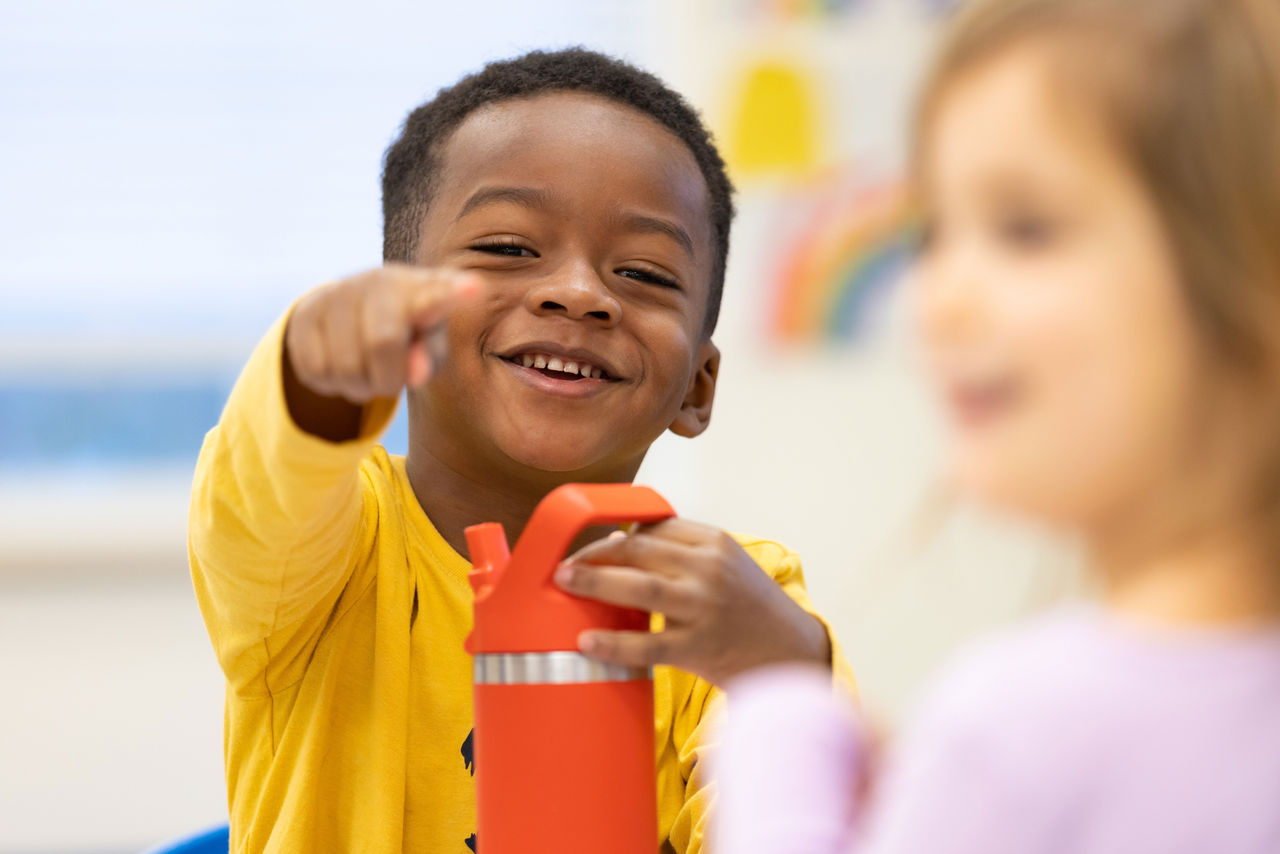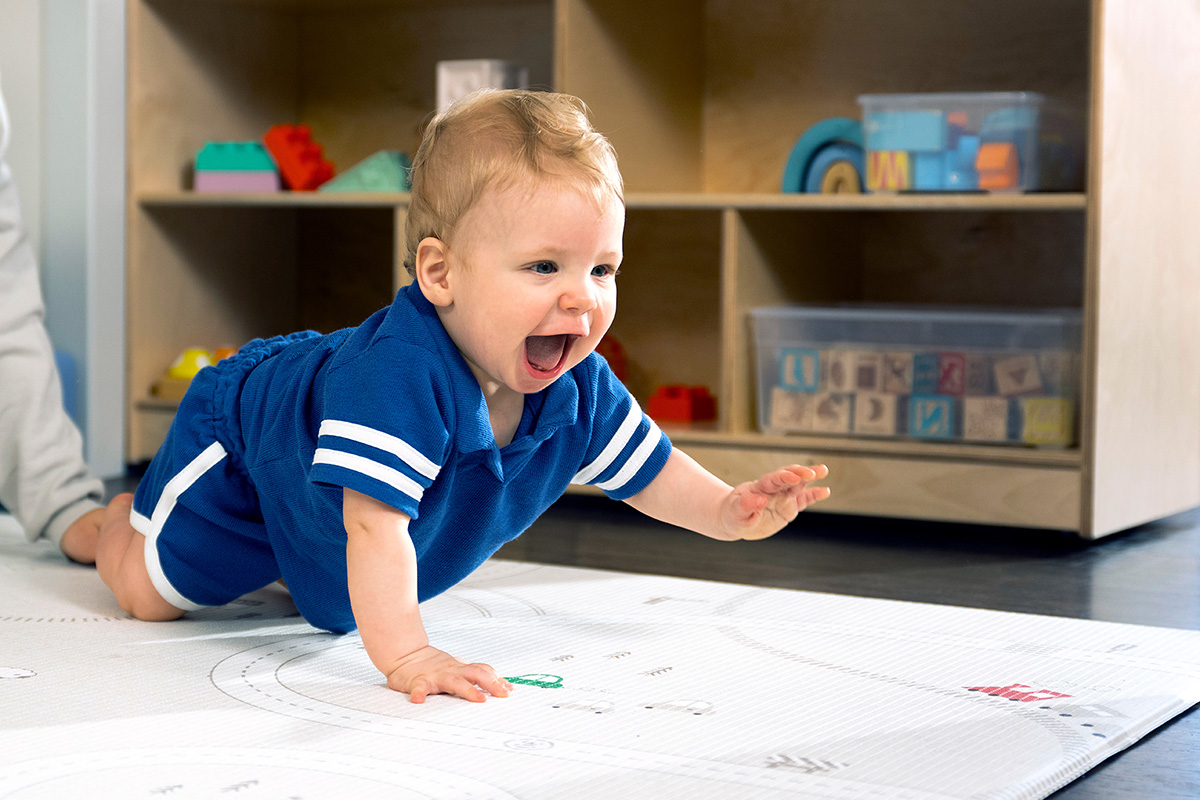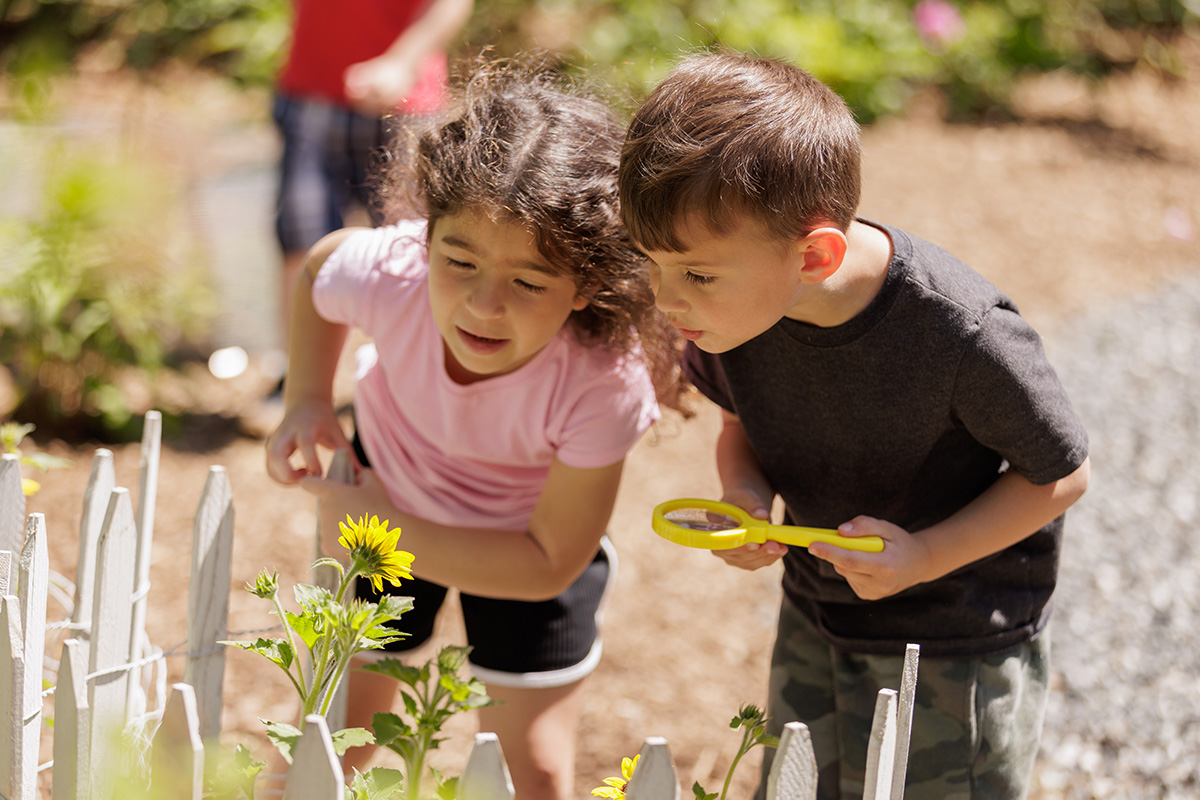Choosing the right early childhood education program for your child can feel overwhelming. There are many approaches to consider, each offering unique philosophies and benefits. At The Goddard School®, our programs are informed by the most recent research in early childhood education. Our innovative Wonder of Learning® curriculum incorporates proven strategies and combines the most recent research to design a personalized learning approach appropriate for every young learner.
Families are sometimes familiar with the Montessori name and ask what the difference is between us. We’ll dive into how the Wonder of Learning curriculum embraces key tenets of Maria Montessori’s philosophy and incorporates innovative strategies and cutting-edge research to continually support what’s best for young learners.
Philosophical Foundations
The Goddard School's Educational Philosophy
Early childhood education research continually finds that young children learn best through play. Wonder of Learning is an inquiry-based curriculum that provides children with opportunities for playful learning and is designed to nurture each child's unique social-emotional, academic and creative development through interactive experiences with peers and teachers alike.
In addition to supporting developmental skills, Wonder of Learning emphasizes STEAM (science, technology, engineering, arts and math) to introduce foundational concepts, such as problem-solving, design thinking and collaboration in fun, play-based ways. Goddard School teachers play an integral role in the learning process, tailoring each day's lessons to meet the needs of their classroom and individual students while supporting the development of communication and collaboration skills.
Foundational Tenets from Maria Montessori
Before we dive into Maria Montessori’s original philosophy, it’s important note is that the term Montessori is not owned by any specific organization; therefore, consistency from one “Montessori school” to another varies widely. Maria Montessori, founder of the Montessori approach in the 1900s, was an Italian physician who developed her approach as she carefully observed young children with disabilities. Montessori’s research led to key concepts many early childhood education organizations use today, such as understanding that young children are very curious and thrive in environments specially designed for their unique needs and interests. In addition, Montessori emphasized the importance of teachers and adults acting more as “guides” so that children have time to deeply explore concepts on their own.
Maria Montessori also designed specialized hands-on materials to support children’s learning and development. Each of these materials isolated a specific concept (such as size, quantity or texture) and allowed children to explore that concept through repetition and self-correction.
Wonder of Learning: Building on Montessori’s Philosophy
Wonder of Learning embraces several of Montessori’s key tenets, including a focus on creating a specialized learning environment, child-centeredness, individualized learning and teachers as guides.
Specialized Learning Environment
Both the Goddard and Montessori classrooms have thoughtfully designed learning environments where children are encouraged to develop important life skills. The purposeful selection of materials is of great importance.
- While the Montessori environment emphasizes self-correcting materials (an extra piece is left over, a child recognizes they made a “mistake” and independently correct it) that serve a specific purpose, materials in Goddard classrooms are open-ended.
- The use of open-ended materials invites children to engage in more complex problem solving, use the materials for a variety of purposes and expand their learning beyond one concept.
- It also encourages children to explore their own ideas and interests.
As society becomes more complex, using real-world, open-ended materials helps children engage in design thinking and learn key skills such as collaboration, critical thinking, communication and creativity.
Classrooms and a Growth Mindset
At Goddard, children learn through a combination of play and teacher-initiated activities. Classrooms are designed for collaboration and creativity, and group activities are a key component of each day's schedule. As a result, classrooms may look and feel lively, as debate, group thinking and play are encouraged. We also encourage making mistakes to develop a growth mindset.
Child-Centeredness and Individualized Learning
The Wonder of Learning approach builds on Maria Montessori’s idea of child-centeredness and extends the concept to focus on personalized learning plans for all learners. At Goddard, each child has their own learning goals and teachers carefully observe them, capturing photos and narratives of their progress throughout the year. Lessons are then customized to meet individual needs.
Teachers as Guides
Maria Montessori determined that children learn more when teachers guide learning. In Montessori, teachers focus on observing children as they use self-correcting learning materials and then provide support as needed. At Goddard Schools, teachers observe children as they engage with other children or work independently. They also work in small groups and individually and provide instruction on key concepts as needed. Teachers use ongoing assessments to ensure each child is on track with their learning and development milestones and adjust instruction and materials as necessary to support each learner.
Which Preschool Is Right for Your Child?
It's important to consider your child's unique personality, needs and strengths when deciding what type of early childhood education is the best fit for them. Feel free to ask questions, observe classes in action and take your time deciding which option might be the better fit. At The Goddard School, our education program is the most innovative in the market. Our inquiry-based learning approach provides each child with the skills they need to thrive academically, emotionally and socially. In fact, 98% of Goddard School 5-year-olds meet or exceed key academic and social benchmarks, which is why where a child starts their educational journey matters.




